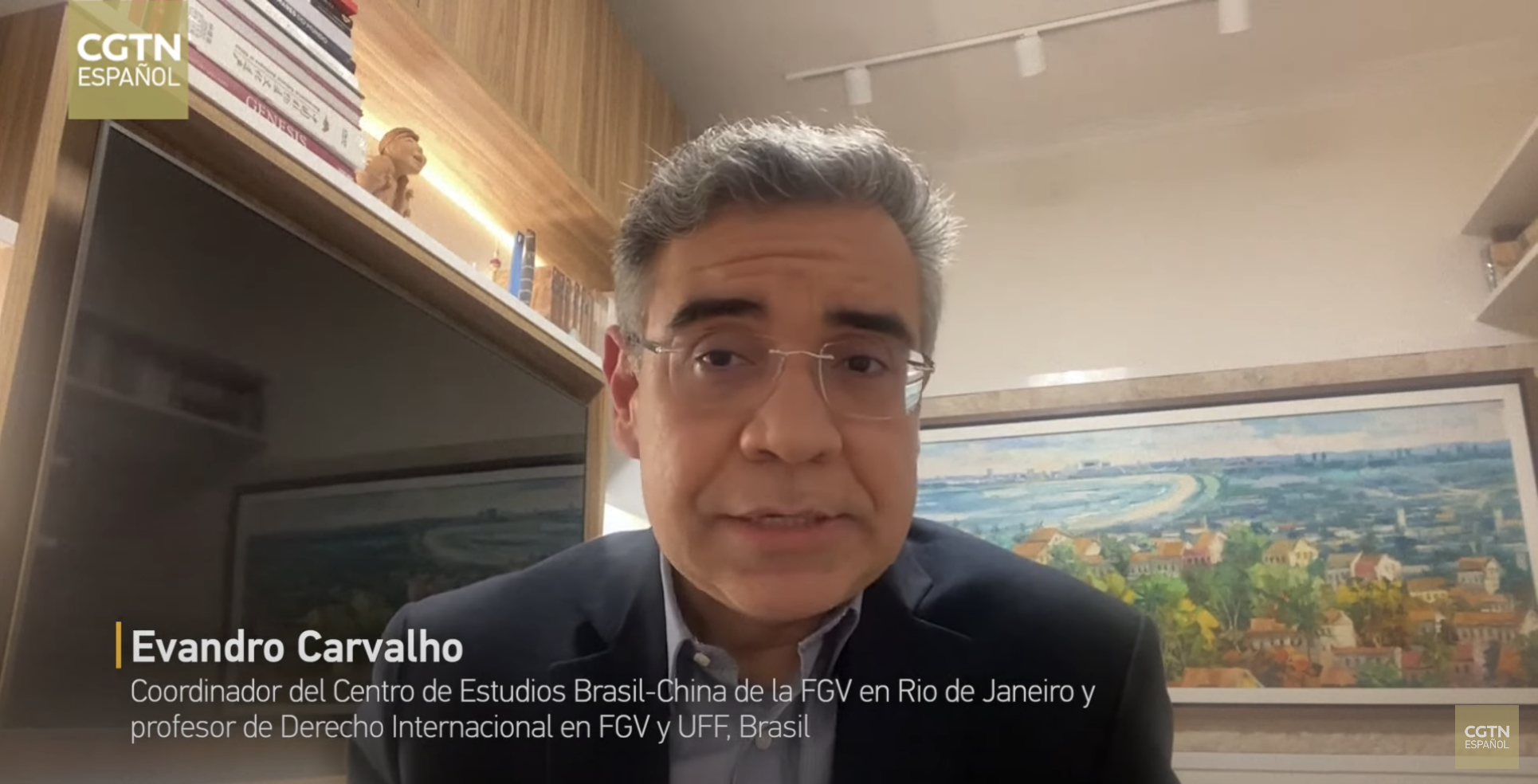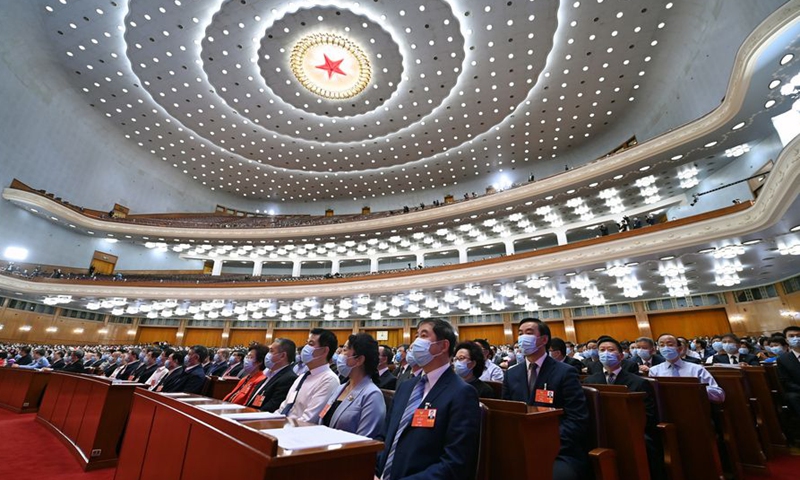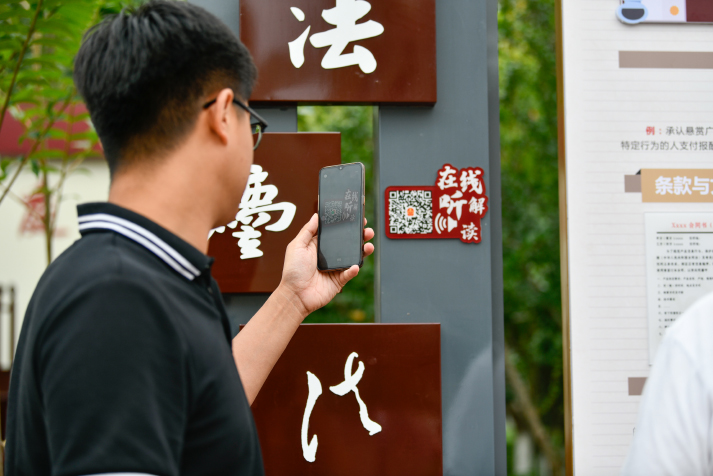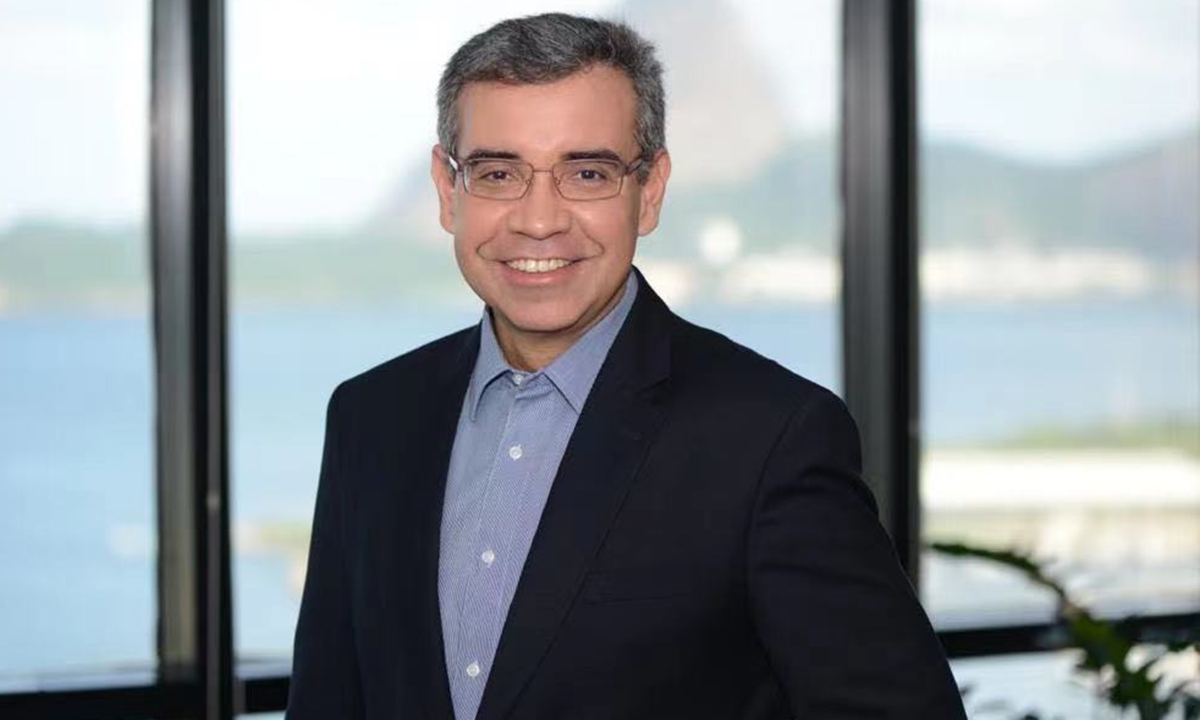03 nov 24

Às vésperas do G20 e da vinda do presidente da China, Xi Jinping, ao Brasil, ganhou intensidade a discussão sobre se o governo Lula aceitará ou não incluir o Brasil como um dos países participantes da Iniciativa Cinturão e Rota (ICR), também referida como Nova Rota da Seda – carro-chefe da política externa chinesa lançada em 2013 que tem no investimento em infraestrutura dos atuais 150 países participantes a sua coluna vertebral.
Em entrevistas recentes, tanto a ex-presidenta Dilma Rousseff quanto o ex-Ministro de Relações Exteriores, Celso Amorim – dois dos maiores quadros políticos do governo Lula para as relações internacionais – expressaram a opinião de que o Brasil deve aproveitar as oportunidades que a ICR pode oferecer para o PAC e outros programas de reindustrialização. Celso Amorim fala em “sinergias”. As declarações são receptivas aos investimentos chineses e ao incremento das parcerias com a China. O Brasil não repudia a ICR, mas tampouco sinaliza que irá assinar, por exemplo, um Memorando de Entendimento declarando ser participante da ICR.
Caberá ao governo brasileiro e à burocracia do MRE, qualificada para executar a política governamental para as relações internacionais, encontrar e negociar aquela frase ou expressão – a “terceira coisa”, diria Philip Allott – que nenhuma das partes envolvidas realmente quer, mas acabam aceitando. O objetivo, aqui, é fazer com que os chineses não “percam a face”. Diplomatas devem dominar a chamada “ambiguidade construtiva”. Entre o sim e o não está, muitas vezes, o lugar que preserva a coerência de uma ação posterior aparentemente contraditória com uma ação anterior.
Desde que foi lançada, a ICR encontrou resistências no Brasil. E é notória a enfática oposição dos EUA a este projeto chinês. Há quem defenda que o melhor lugar para se estar diante das circunstâncias internacionais atuais onde uma guerra mundial já está em curso na sua fase inicial, é em cima do muro. Getúlio Vargas fez isto com muita maestria. E ele não era tucano, vale a ressalva. E nem poderia ser, claro. Depois ele desceu do muro ao obter a indústria siderúrgica nacional. Porque uma coisa é estar em cima do muro de maneira construtiva e com uma estratégia em mente; outra é estar em cima do muro na esperança apenas de se esquivar de balas cruzadas porque os lados em conflito (no caso em questão, China e EUA) o perceberiam como “neutro”. É hora de discutir o que é estar “em cima do muro”. Entre Vargas e o estilo tucano pode haver outros equilíbrios e estratégias de ação. Qual é a do governo do Lula? Uma “terceira coisa”? A ver.
31 out 24

“Para entender a China de hoje, é necessário entender o Partido Comunista da China.”
O Diário do Povo Online lançou o programa “Entendendo a China”. Figuras políticas internacionais, acadêmicos chineses e estrangeiros mantiveram diálogos aprofundados, tentando interpretar uma China verdadeira, tridimensional e abrangente através de intercâmbios e comunicação a partir de diferentes perspectivas.
A modernização chinesa é a modernização que segue o caminho do desenvolvimento pacífico. Este episódio do programa “Endendendo a China” convida a pesquisadora chinesa He Wenping, diretora do Escritório de Estudos Africanos do Instituto de Estudos Asiáticos e Africanos da Academia Chinesa de Ciências Sociais, e brasileiro Evandro Carvalho, professor da Faculdade de Direito da Fundação Getúlio Vargas e professor associado da Faculdade de Direito da Universidade Federal Fluminense, a explorarem conjuntamente a importância da modernização chinesa para o desenvolvimento pacífico global.
Ambos os lados ponderam que a modernização chinesa não se baseia na pilhagem estrangeira, como o Ocidente. A China acredita no benefício mútuo e no ganha-ganha, em vez do jogo de soma zero. A modernização chinesa não é uma ameaça para o mundo, mas uma força para o desenvolvimento pacífico.
Assista ao programa clicando na imagem ou aqui!
Fonte: Diário do Povo Online Publicado em 28.10.2024
Link para a matéria original aqui: http://portuguese.people.com.cn/n3/2024/1028/c309810-20234796.html
24 ago 23
Entrevista que dei para a CGTN Español sobre a Cúpula do BRICS em agosto deste ano de 2023.

Disponível no link: https://www.youtube.com/watch?v=4l4vlTFYfQs
15 ago 23

Among the topics on the table for the upcoming BRICS Summit in South Africa in late August, we could highlight the prominent topics related to the use of national currencies for intra-BRICS (Brazil, Russia, India, China and South Africa) trade relations and the expansion of the grouping. However, a third topic deserves greater attention: cooperation in digital infrastructure for developing digital economies and governance.
While the proposal to have a common BRICS currency is currently out of the question, the proposal that aims to expand agreements to finance bilateral trade in their national currencies has gained strength among the five countries. The risks to economic sovereignty arising from excessive dependence on the U.S. currency and the need to reduce transaction costs in intra-BRICS trade relations make this agenda item a priority.
The process of the de-dollarization of the global economy will be slow. Still, it seems irreversible and partly driven by China’s dedicated diplomatic effort to promote the yuan in its relations with its partner countries. Most trade deals between Russia and China are already being conducted with the Russian ruble and the yuan. The agreement between China and Brazil to facilitate the direct transaction between the Brazilian real and the yuan in bilateral commercial operations was well received and accepted in Brazil, signaling that Brazilian economic actors are on board with this measure.
Delicate issue
The same cannot be said for the expansion of BRICS. That is a delicate issue due to the change in international geopolitics that the expansion of the group could bring. Since it proposed BRICS Plus in 2017, China has already been signaling that it wants to expand the BRICS grouping. For its part, Brazil understood that outreach dialogues with countries invited to participate in the summits were sufficient.
But recently, the proposed expansion of the BRICS grouping gained new impetus due to an “external stimulus.” More than 40 countries have expressed interest in definitively joining the grouping. What is the reason for this growing interest in the BRICS grouping, which, in its early years, was viewed with a certain skepticism by the international community, especially Western powers? The search for inclusive and results-oriented multilateralism may be one of the answers to this question.
07 ago 23

Dentre os temas que estão na ordem do dia para a próxima Cúpula do BRICS na África do Sul estão o uso de moedas nacionais para as relações comerciais intra-BRICS, e a ampliação do número de membros do bloco. Há um terceiro tema que deveria merecer maior atenção: a cooperação em infraestrutura digital para o desenvolvimento de uma economia e uma governança digital.
Enquanto a proposta de se ter uma moeda comum do BRICS ainda encontra-se no âmbito das intenções, a que visa ampliar acordos para financiar o comércio bilateral em moeda nacional é já uma realidade. Os riscos à soberania econômica decorrentes da dependência excessiva da moeda estadunidense e a necessidade de se reduzir os custos de transação nas relações comerciais intra-BRICS dão pertinência a esta agenda.
O processo de desdolarização da economia global parece um movimento irreversível e impulsionado pelo dedicado esforço diplomático da China em promover o yuan nas relações com seus países parceiros. Grande parte dos acordos comerciais entre Rússia e China já estão sendo conduzidos com rublos russos e yuan. O acordo entre a China e o Brasil para viabilizar a transação direta entre real e o yuan nas operações comerciais bilaterais teve uma boa repercussão no Brasil, sinalizando que os atores econômicos brasileiros estão receptivos a esta medida.
Mas se o uso de moedas locais é um consenso entre os países BRICS, o mesmo não se pode dizer em relação à expansão do bloco. Este é um tema politicamente complexo em razão do redesenho da geopolítica internacional que a ampliação do grupo poderá provocar. A China já vinha sinalizando querer a ampliação do BRICS desde quando propôs o BRICS-Plus em 2015. O Brasil, por sua vez, entendia serem suficientes os diálogos de outreach com países convidados a participarem das Cúpulas.
A proposta de expansão do BRICS ganhou novo fôlego devido a um “estímulo externo”.
04 ago 23

International organizations are facing a crisis of legitimacy and effectiveness, in turn a symptom of the crisis of multilateralism.
The critical years of the COVID-19 pandemic revealed the difficulties that the World Health Organization had in meeting its institutional objectives — namely, to keep the world healthy and serve the vulnerable so that everyone can achieve the highest level of health.
Some Western leaders politicized the COVID-19 pandemic, and they didn’t take any steps to reduce the contagion risks that people in poorer countries suffered. Recently, during the Summit for a New Global Financing Pact, hosted by French President Emmanuel Macron in Paris, Cyril Ramaphosa, the president of South Africa, said that African countries “felt like we were beggars” when it came to vaccine availability.
“The Northern Hemisphere countries had bought all the vaccines in the world… and they didn’t want to release them at the time when we needed them the most,” he said. This statement is a tough truth.
According to the United Nations’ Sustainable Development Goals Report 2021, “The pandemic has set back progress toward the Sustainable Development Goals by decades, across all areas.” The International Monetary Fund has estimated the cumulative financial loss through 2024 due to the pandemic at $13.8 trillion. But is this due to the pandemic or the lack of solidarity and the greed of the wealthiest countries?
Talking about the IMF, its legitimacy is also in question as it fails to convince many countries that it can help their economies. Argentina is the principal debtor of the IMF, and its relationship with this international organization goes back to the 1980s, without any substantial improvement to its economy. Although the IMF is dominated by the United States, which holds about 17 percent of the voting rights in a system that requires 85 percent consent, the US is upset by the growing presence of Chinese banks in the world and claims to want to prevent countries borrowing from the IMF to repay Chinese loans. Interestingly, Argentina made a significant payment to the IMF using yuan from the central bank of China.
The rise of the Chinese economy and the fact that China is a very active country in several international organizations seem to have motivated the US to disengage from the multilateral system that it created in the 20th century. Furthermore, former US president Donald Trump started the trade war against China by imposing additional tariffs on Chinese products.
The competition with China has made the US more protectionist and caused some damage to multilateralism. But with the Russia-Ukraine conflict, and with NATO backing Ukraine, multilateralism is at serious risk. This conflict could acquire more significant proportions, and the countries in the conflict are looking for international support.
Fortunately, the detachment of the vast majority of developing countries has been noteworthy, as it can be interpreted as a generalized dissatisfaction of these countries with the way in which NATO, Ukraine and Russia are dealing with this complex situation.
The crisis of multilateralism is a crisis of Western leadership. Instead of committing to inclusive multilateralism, the most powerful countries in the West are practicing selective multilateralism, trying to isolate China and threatening other developing countries not aligned with their will. The West’s selective multilateralism is contrary to the spirit of the UN Charter.
The foundations of the post-World War II international order are being shaken. The world is at a dangerous crossroads. Fortunately, developing countries are rightly keeping a relative distance from the Ukraine crisis. But although this distance can stand between them and irresponsible acts, silence is not an option.
Perhaps it is time to convene a new “Bandung Conference” in order to include all peaceful countries. This is also as crucial as the UN’s 2030 Agenda for Sustainable Development. A conference for inclusive multilateralism would be in line with the China-proposed Global Civilization Initiative, which advocates a real dialogue and inclusiveness among civilizations. The language of cooperation and peace must speak louder to save multilateralism, and this language increasingly depends on developing countries.
The author is a professor of international law and head of the Center for Brazil-China Studies at the Law School at the Getulio Vargas Foundation in the city of Rio de Janeiro, Brazil, and a professor of international law at Fluminense Federal University in Rio de Janeiro state. The views do not necessarily reflect those of China Daily.
Este artigo foi publicado originalmente no CHINA DAILY GLOBAL, no link: http://www.chinadailyglobal.com/a/202307/26/WS64c06abba31035260b818820.html
27 jun 22
Evento organizado pelo Instituto de Estudos Estratégicos da UFF e realizado no dia 14 de junho de 2022.
Para acessar ao evento, clique aqui.

09 jun 22

A 5ª Sessão Plenária da 13ª legislatura da Assembleia Popular Nacional (APN) da China e a sessão do 13º Comitê Nacional da Conferência Consultiva Política do Povo Chinês (CCPPCh) concluíram-se no dia 11 de março em um momento em que as incertezas quanto ao futuro da ordem internacional só aumentam. Desde a crise financeira de 2008, que teve os Estados Unidos como epicentro, a China vem se preparando para cenários de maiores desafios no âmbito global e doméstico. A inesperada pandemia, a guerra comercial iniciada pelo ex-presidente estadunidense Donald Trump contra a China e, agora, a guerra da Rússia contra a Ucrânia adicionam ainda mais incertezas. Do “novo normal” (que prevê crescimentos do PIB chinês em torno de 5.5% a 6.5%) até a chamada “circulação dupla” (política econômica com ênfase no mercado doméstico) o governo chinês tem procurado ajustar a sua economia às circunstâncias internacionais do momento, sem perder de vista os seus objetivos de construir um país socialista moderno até 2035, no caminho para uma transformação abrangente até 2049, que marcará o centenário da fundação da República Popular da China.
No 14º Plano Quinquenal, aprovado no ano passado, o governo chinês externou que ainda há muito a ser feito para o bem-estar da população em razão das “disparidades de desenvolvimento entre áreas urbanas e rurais e entre regiões e na distribuição de renda”. Mas também sublinhou que a China tem vantagens institucionais significativas e “melhorado o seu desempenho na governança” do país. De fato, o sistema político chinês tem sido um fator determinante para o desenvolvimento econômico da China desde o início da política de reforma e abertura no final da década de 1970. Com o atual governo de Xi Jinping, a China aprofunda as reformas internas e a sua abertura para o mundo. Um tema atravessa essas duas dimensões e tem se destacado na atualidade: a promoção do chamado estado de direito socialista com características chinesas.
Já no início do seu primeiro mandato, o presidente Xi Jinping havia apontado o fortalecimento do Estado de Direito como uma das “quatro disposições estratégicas integrais” de seu governo [1]. Um sistema jurídico eficiente passou a ser indispensável para a governança de uma China cada vez mais complexa, sofisticada, com uma classe média crescente que deverá chegar a 800 milhões de pessoas em 2035 e uma economia com presença global. Muitos analistas ocidentais viam e ainda veem com ceticismo a possibilidade de a China ter uma governança jurídica avançada. Mas durante o governo de Xi Jinping, essa agenda evoluiu de maneira considerável.
Vejamos alguns fatos:
06 jun 22

Um dos temas de meu interesse sobre a China é sobre o desenvolvimento da governança baseada na lei. Abaixo, o artigo de minha autoria publicado na Beijing Review, em 11 de março de 2022. Para acessar o link da matéria original, clique aqui.
The Fifth Session of the 13th National People’s Congress (NPC) and the Fifth Session of the 13th National Committee of the Chinese People’s Political Consultative Conference took place at a time of increased uncertainty regarding the future of the international order. Since the 2008 financial crisis, which had the U.S. as its epicenter, China has been preparing for more challenging scenarios at the global and domestic levels.
The unexpected pandemic, the U.S.-initiated trade war, and the conflict between Russia and Ukraine add to the uncertainty. From the new normal to dual circulation—in which the domestic and overseas markets reinforce each other, with the former being the mainstay—the Chinese Government has sought to adjust its economic policy to the international circumstances. The country tries not to lose sight of its primary goal: basically achieving modernization by 2035 on the way to comprehensive transformation by 2049, which will mark the centenary of the founding of the People’s Republic of China (PRC).
In the 14th Five-Year Plan (2021-25) approved last year, the Chinese Government stated that there is still much to be done for the population’s wellbeing and to solve disparities in development between urban and rural areas and between regions, as well as in income distribution. But it also emphasizes that China has significant “institutional advantages” and has “improved performance in governance.” Indeed, the Chinese political system and the leadership of the Communist Party of China (CPC) in running the nation have been determining factors in China’s economic development since the beginning of the reform and opening-up policy in the late 1970s. Under the leadership of President Xi Jinping, China has deepened its internal reforms and its opening up to the world. One theme crosses these two dimensions and stands out today: the construction of socialist rule of law with Chinese characteristics.
Incremental progress
Early in his first term, President Xi chose strengthening the rule of law as one part of his government’s Four-Pronged Comprehensive Strategy. An efficient legal system has become indispensable for the governance of an increasingly complex and sophisticated China, with a growing middle class and an economy with a global presence. Many Western analysts have been, and still are, skeptical about the possibility of China having advanced legal governance. But under Xi, this agenda has evolved considerably.
06 jun 22

Entrevista publicada no Global Times no dia 10 de maio de 2022 onde pude tratar de diversos temas relacionados à política externa chinesa. Alguns pontos de vistas que estarão no meu livro foram abordados também aqui.
[Global Times] Editor’s Note:
For the Chinese people, the past decade was epic and inspirational. The country, under the leadership of President Xi Jinping, has made great endeavors in boosting its economy, deepening reforms, improving the rights of its people and acting as a responsible power globally.
Global development now faces various challenges, what is the key for the international community in this context? In the following interview, Evandro Menezes de Carvalho (Carvalho), director of the Center for Chinese Studies at the Brazilian college Getulio Vargas Foundation, shared his view on this issue with Global Times (GT) reporter Xu Hailin, as well as his understanding of China’s role in promoting common development of the world. This is the fourth of the series.
GT: The 14th BRICS Summit is scheduled to be held in June in China’s Xiamen. The summit will be themed “Foster High-quality BRICS Partnership, Usher in a New Era for Global Development.” Amid the current international situation, global development faces various challenges. How do you think the international community should handle these challenges?
Carvalho: Since the end of the Cold War, the world has embraced the idea of so-called globalization with the promise of a free circulation of goods and people across borders. The emergence of the internet as we know it and the creation of the World Trade Organization in the 1990s were driving forces of this ideology and, above all, of the liberal economic order. China’s entry into the WTO in 2001 was an event of the utmost importance given its economic weight and population. Many Western analysts saw this as a harbinger of China’s adherence to the Western economic model. Once again, these analysts were looking at China with a wrong lens.
The most important thing was that multilateralism was gaining ground, regardless of each country’s political and economic regimes, in line with the spirit of the United Nations, which does not discriminate against States because of their government regimes and economic model. But the terrorist attack on the Twin Towers in 2001 and the 2008 financial crisis reversed the positive expectations fueled in the 1990s that seem increasingly distant now. Multilateralism begins a retraction stage aggravated by the US’ difficulty in dealing with China’s economic rise. Such a scenario led the US to take protectionist and unilateralist measures that question this country’s commitment to the economic order it once ardently defended.
The scenario is still getting worse. The US began to question the rules of the international system that they had defended before. Also, since the war against Iraq in 2001, the US showed signs of privileging NATO over the UN when the matter is of supreme national interest and meets its demands for expansion of power. This expansion and how it is being carried out worries many countries. Suffice it to note that the vast majority, if not all, countries in South and Central America, Africa, the Middle East and Asia have refused to impose sanctions against Russia in the current conflict with Ukraine, contrary to the expectations of the US and the other NATO countries. We are not saying that those countries are against the US and NATO, but they do not want a unipolar world. They don’t agree to submit multilateralism to the interests of only a few powerful Western countries. So, it is time to urgently re-discuss the future of the UN, its reform and support initiatives that strengthen multilateralism.
GT: The Belt and Road Initiative (BRI) has been put forward for nine years. It has benefited many countries including Brazil. How do you evaluate China’s concept of mutually beneficial cooperation? What’s your take on China’s role in the past decade in promoting common development of different countries?
Carvalho: The Belt and Road Initiative is the first major international initiative of this 21st century, with positive repercussions for the Eurasian region and even for other African and Latin American countries. In other words, it is an initiative that promotes and expands multilateralism and, therefore, should be very welcome. The BRI is an economic integration project different from those that prevailed in the 20th century and that had two great models as a reference: the European model, based on the constitution of an international organization – in this case, the European Union – with a highly complex legal-institutional apparatus and with a transfer of part of the sovereignty of its Member States to some bodies of this organization; and the US model, which is based on a low-profile economic integration process, oriented toward the constitution of free trade zones that only imply the reduction of tariff and non-tariff barriers for goods, without worrying about the free circulation of people and with very few investments in infrastructure to improve the international trade between the countries involved in the economic integration project.









